Here are my favorite examples of 4 stanza poems categorized:
- Short poems with 4 stanzas
- 4 stanza poems about life
- 4 stanza poems that rhyme
So if you want plenty of examples of 4 stanza poems, then you’re in the right place.
Let’s get right into it!
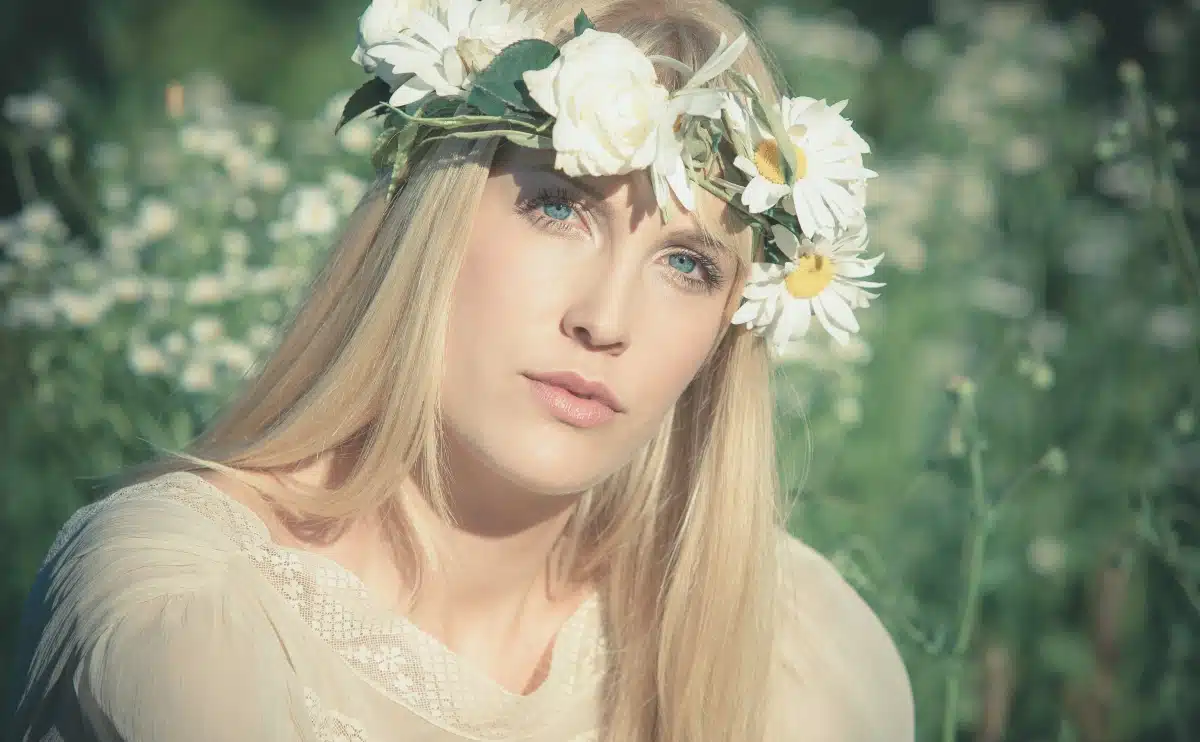
Astounding Examples of 4 Stanza Poems

Welcome to my collection of all-time four-stanza poem favorites!
Poetry has long been celebrated as a powerful form of expression and four-stanza poems stand out as a captivating and versatile structure.
In this collection of four-stanza poems, we will embark on a journey through different categories, exploring the beauty of love, nature, introspection, and the human experience.
Let yourself be enchanted by the rhythmic cadence, enchanting metaphors, and poignant insights that these poems have to offer.
Enjoy the journey!
My #1 Favorite Example of a 4 Stanza Poem

“How I Know” by Eugene Field
Because she has sweeter and fairer grown;
Because her voice has a tenderer tone;
Because her eyes droop when they meet my own–
I know my darling loves me!
Because her smile is a vision of bliss;
Because on her red lips trembles a kiss;
Because of all that, and because of this-
I know my darling loves me!
Because the touch of her dear hand thrills me;
Because her thoughts lead and her mind wills me;
Because her sweet presence with love fills me–
I know I love my darling!
Because she makes my poor life worth its pain;
Because a soul’s strivings seem not in vain;
Because with her dear love I live again-
I know I love my darling!
Why “How I Know” Is My Favorite Example of a 4 Stanza Poem

“How I Know” is a literary gem that has an amazing quality of using repetition in such a straightforward yet beautiful way that even beginners to poetry can appreciate.
The way the poet uses descriptive language is just so tender and skillful, painting this nostalgic picture of how lovers express their affection for each other.
In the first two stanzas, we can really feel why his beloved loves him so much and in the last two stanzas, Field highlights why he deeply loves her in return.
That’s why, “How I Know” is a classic example of a poem that we can savor and enjoy every single word and verse, like a delicious treat!
The sweet lines are so relatable and resonates with people from all walks of life, especially hopeless romantics like myself.
Short Poems With 4 Stanzas

Discover the impact that short four-stanza poems from iconic poets can have!
Embark on a lyrical journey through timeless pieces, where magic, love, heartache, and loss blend together in a harmonious tapestry of human experience.
“A Faery Song” by William Butler Yeats
We who are old, old and gay,
O so old!
Thousands of years, thousands of years,
If all were told:
Give to these children, new from the world,
Silence and love;
And the long dew-dropping hours of the night,
And the stars above:
Give to these children, new from the world,
Rest far from men.
Is anything better, anything better?
Tell us it then:
Us who are old, old and gay,
O so old!
Thousands of years, thousands of years,
If all were told.
“The Bee” by Emily Dickinson
Like trains of cars on tracks of plush
I hear the level bee:
A jar across the flowers goes,
Their velvet masonry
Withstands until the sweet assault
Their chivalry consumes,
While he, victorious, tilts away
To vanquish other blooms.
His feet are shod with gauze,
His helmet is of gold;
His breast, a single onyx
With chrysoprase, inlaid.
His labor is a chant,
His idleness a tune;
Oh, for a bee’s experience
Of clovers and of noon!
“The Hemlock” by Emily Dickinson
I think the hemlock likes to stand
Upon a marge of snow;
It suits his own austerity,
And satisfies an awe
That men must slake in wilderness,
Or in the desert cloy,
An instinct for the hoar, the bald,
Lapland’s necessity.
The hemlock’s nature thrives on cold;
The gnash of northern winds
Is sweetest nutriment to him,
His best Norwegian wines.
To satin races he is nought;
But children on the Don
Beneath his tabernacles play,
And Dnieper wrestlers run.
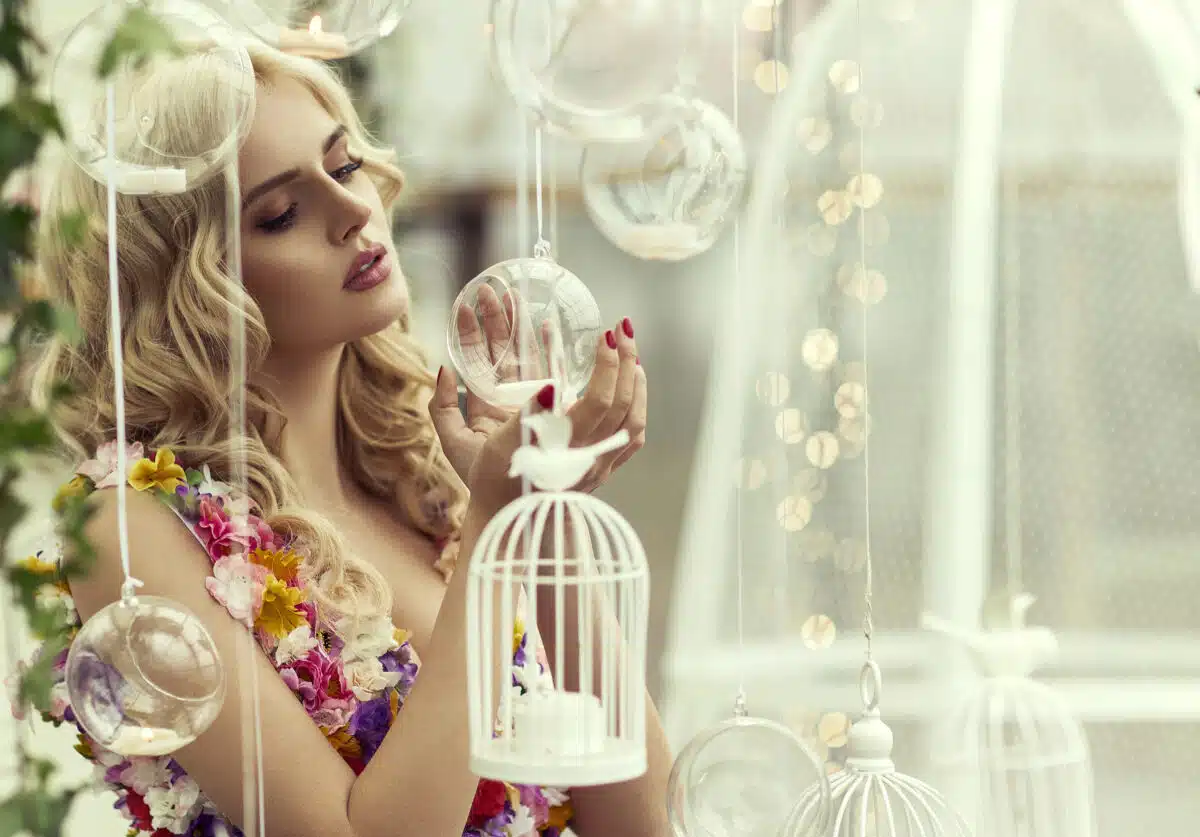
“Emancipation” by Emily Dickinson
No rack can torture me,
My soul’s at liberty.
Behind this mortal bone
There knits a bolder one
You cannot prick with saw,
Nor rend with scymitar.
Two bodies therefore be;
Bind one, and one will flee.
The eagle of his nest
No easier divest
And gain the sky,
Than mayest thou,
Except thyself may be
Thine enemy;
Captivity is consciousness,
So’s liberty.
“A Dream Of A Blessed Spirit” by William Butler Yeats
All the heavy days are over;
Leave the body’s coloured pride
Underneath the grass and clover,
With the feet laid side by side.
One with her are mirth and duty,
Bear the gold embroidered dress,
For she needs not her sad beauty,
To the scented oaken press.
Hers the kiss of Mother Mary,
The long hair is on her face;
Still she goes with footsteps wary,
Full of earth’s old timid grace.
With white feet of angels seven
Her white feet go glimmering
And above the deep of heaven,
Flame on flame and wing on wing.
“To An Isle In The Water” by William Butler Yeats
Shy one, shy one,
Shy one of my heart,
She moves in the firelight
Pensively apart.
She carries in the dishes,
And lays them in a row.
To an isle in the water
With her would I go.
She carries in the candles,
And lights the curtained room,
Shy in the doorway
And shy in the gloom;
And shy as a rabbit,
Helpful and shy.
To an isle in the water
With her would I fly.

“New Love And Old” by Sara Teasdale
In my heart the old love
Struggled with the new;
It was ghostly waking
All night thru.
Dear things, kind things,
That my old love said,
Ranged themselves reproachfully
Round my bed.
But I could not heed them,
For I seemed to see
The eyes of my new love
Fixed on me.
Old love, old love,
How can I be true?
Shall I be faithless to myself
Or to you?
“May Day” by Sara Teasdale
The shining line of motors,
The swaying motor-bus,
The prancing dancing horses
Are passing by for us.
The sunlight on the steeple,
The toys we stop to see,
The smiling passing people
Are all for you and me.
“I love you and I love you!” —
“And oh , I love you , too !” —
“All of the flower girl’s lilies
Were only grown for you!”
Fifth Avenue and April
And love and lack of care
The world is mad with music
Too beautiful to bear.
“Three Seasons” by Christina G. Rossetti
“A cup for hope!” she said,
In springtime ere the bloom was old:
The crimson wine was poor and cold
By her mouth’s richer red.
“A cup for love!” how low,
How soft the words; and all the while
Her blush was rippling with a smile
Like summer after snow.
“A cup for memory!”
Cold cup that one must drain alone:
While autumn winds are up and moan
Across the barren sea.
Hope, memory, love:
Hope for fair morn, and love for day,
And memory for the evening grey
And solitary dove.
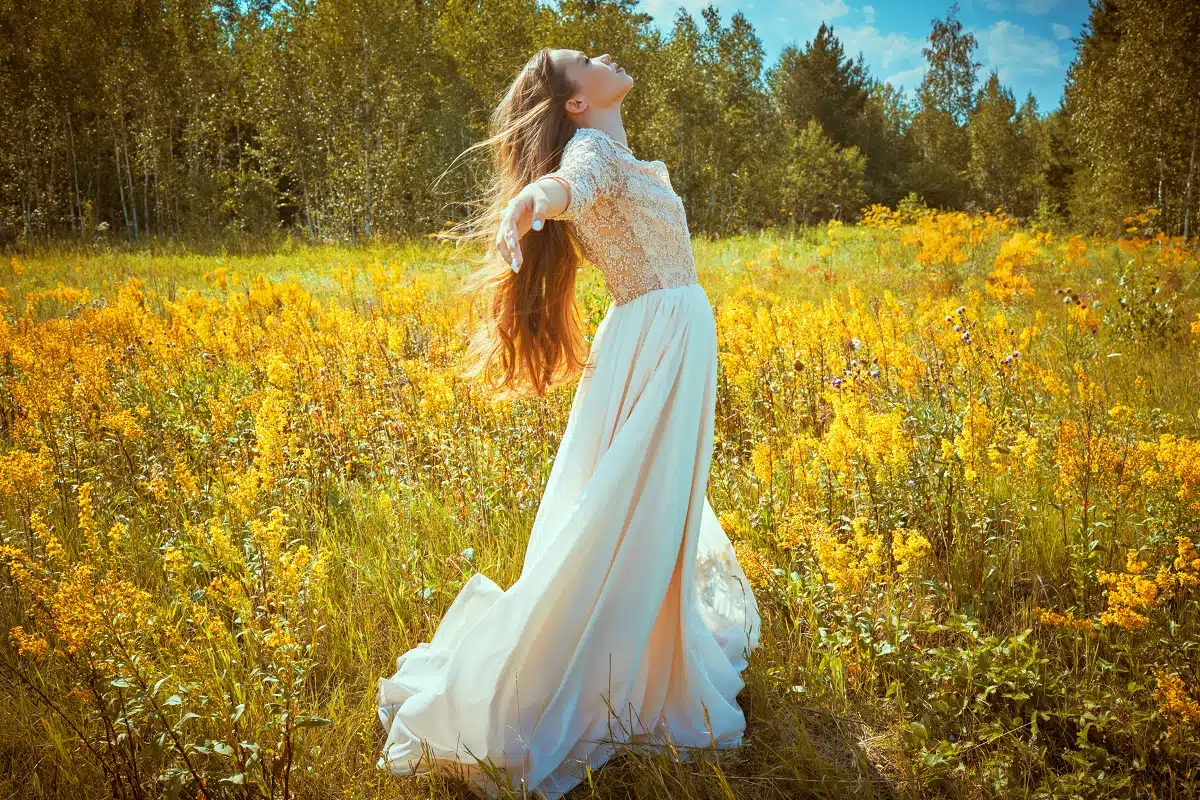
“A Prayer” by Robert Burns
Written Under the Pressure of Violent Anguish
Oh Thou great Being! what Thou art
Surpasses me to know:
Yet sure I am, that known to Thee
Are all thy works below.
Thy creature here before Thee stands,
All wretched and distrest ;
Yet sure those ills that wring my soul
Obey thy high behest.
Sure Thou, Almighty, canst not act
From cruelty or wrath!
Oh free my weary eyes from tears,
Or close them fast in death!
But if I must afflicted be,
To suit some wise design;
Then man my soul with firm resolves,
To bear, and not repine!
“Mary” by Robert Burns
Powers celestial! whose protection
Ever guards the virtuous fair,
While in distant climes I wander,
Let my Mary be your care:
Let her form sae’ fair and faultless,
Fair and faultless as your own,
Let my Mary’s kindred spirit
Draw your choicest influence down.
Make the gales you waft around her
Soft and peaceful as her breast;
Breathing in the breeze that fans her,
Soothe her bosom into rest:
Guardian angels! oh protect her
When in distant lands I roam;
To realms unknown while fate exiles me
Make her bosom still my home.
“Address To The Woodlark” by Robert Burns
O stay, Sweet warbling woodlark, stay!
Nor quit for me the trembling spray;
A hapless lover courts thy lay,
Thy soothing, fond complaining.
Again, again that tender part,
That I might catch thy melting art;
For surely that wad’ touch her heart
Wha kills me, wi’ disdaining.
Say, was thy little mate unkind,
And heard thee as the careless wind?
Oh ! nocht but love and sorrow joined,
Sic notes o’ wo could wauken.”
Thou tells o’ never-ending care;
O’ speechless grief, and dark despair :
For pity’s sake, sweet bird, nae mair,
Or my poor heart is broken!
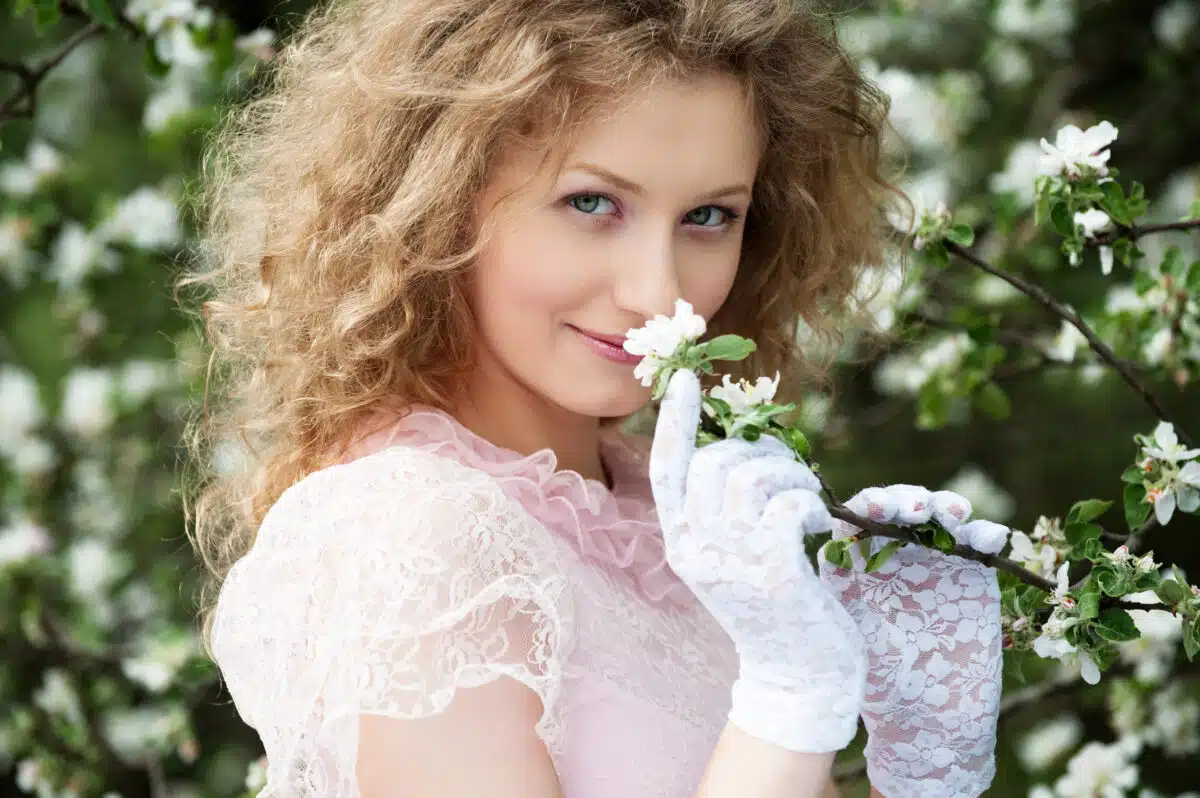
“My Mary” by Thomas Moore
Love, my Mary, dwells with thee,
On thy cheek his bed I see;
No, that cheek is pale with care,
Love can find no roses there.
‘Tis not on the cheek of rose
Love can find the best repose;
In my heart his home thou’lt see,
There he lives, and lives for thee!
Love, my Mary, ne’er can roam,
While he makes that eye his home;
No, the eye with sorrow dim,
Ne’er can be a home for him.
Yet, ’tis not in beaming eyes
Love for ever warmest lies;
In my heart his home thou’lt see,
Here he lives, and lives for thee!
“To A Lady” by Thomas Moore
On Her Singing.
Thy song has taught my heart to feel
Those soothing thoughts of heav’nly love
Which o’er the sainted spirits steal
When list’ning to the spheres above.
When, tir’d of life and misery,
I wish to sigh my latest breath,
Oh, Emma! I will fly to thee,
And thon shalt sing me into death!
And if along thy lip and cheek
That smile of heav’nly softness play,
Which, ah! forgive a mind that’s weak, –
So oft has stol’n my mind away;
Thou’lt seem an angel of the sky,
That comes to charm me into bliss:
I’ll gaze and die-Who would not die,
If death were half so sweet as this?
“I taste a liquor never brewed” by Emily Dickinson
On Her Singing.
Thy song has taught my heart to feel
Those soothing thoughts of heav’nly love
Which o’er the sainted spirits steal
When list’ning to the spheres above.
When, tir’d of life and misery,
I wish to sigh my latest breath,
Oh, Emma! I will fly to thee,
And thon shalt sing me into death!
And if along thy lip and cheek
That smile of heav’nly softness play,
Which, ah! forgive a mind that’s weak, –
So oft has stol’n my mind away;
Thou’lt seem an angel of the sky,
That comes to charm me into bliss:
I’ll gaze and die-Who would not die,
If death were half so sweet as this?

“Cease, O Cease To Tempt” by Thomas Moore
Cease, oh cease to tempt,
My tender heart to love,
It never, never, can
So wild a flame approve.
All its joys and pains,
To others I resign;
But be the vacant heart,
The careless bosom mine.
Say, oh say no more,
That lover’s pains are sweet;
I never, never can,
Believe the fond deceit.
Weeping day and night,
Consuming life in sighs;
This is the lover’s lot,
And this I ne’er could prize.
“Dying” by Unknown
Passing Out of the shadow
Into a purer light;
Stepping behind the curtain,
Getting a clearer sight;
Laying aside a burden,
This weary mortal coil;
Done with the world’s vexations,
Done with its tears and toil;
Tired of all earth’s playthings,
Heartsick. and ready to sleep,
Ready to bid our friends farewell,
Wondering why they weep;
Passing out of the shadow
Into eternal day.
Why do we call it dying,
This sweet going away!
“This Would I Do” by Constance Runcie
If I were a rose,
This would I do:
I would lie upon the white neck of her I love
And let my life go out upon the fragrance
Of her breath.
If I were a star,
This would I do:
I would look deep down in her eyes,
In the eyes I love, and learn there
How to shine.
If I were a truth strong as the Eternal One,
This would I do:
I would live in her heart, in the heart
I know so well, and
Be at home.
If I were a sin,
This would I do:
I would fly far away, and though her soft hand
In pity were stretched out, I would not stay, but fly
And leave her pure.

“Golden Rod” by Julie M. Lippmann
By the roadside, nodding yellow,
In the autumn sunlight mellow,
Where the withered mulleins nod,
Bends and sways the golden rod.
And the winds are blowing, calling
“Winter!” to the red leaves falling,
To the milk weed’s slender rod,
To the shivering golden rod.
See the winds are blowing faster
Over grasses, shumac, aster,
O’er the withered, yellow sod,
Where was born the golden rod.
Glowing fainter, bows it sadly
Through the snowflakes falling madly,
And some message sent by God
Faints and dies in golden rod.
“The Vigil Of Adam” by Dr. S. Weir Mitchell
Far in Asia, saith the legend,
On a peak whose nameless towers
Use the plains a hundred miles off
For their dial of the hours;
Where the tallest Himalaya
Rises sad because so lonely,
Whence the eagle swoops in terror,
And the stars of God are only;
Sitteth one of ancient visage,
One more strange than aught below him,
One who lived so near to God once,
That for man we scarce should know him;
Far above the busy world tribes,
Miles above the pine trees, bending,
Lonely as when God first made him,
There he keepeth watch unending.
“Moods” by Frank Dempster Sherman
Upon a mountain summit high,
A trysting place of earth and sky,
Three friends once stood in silent awe,
Each contemplating what he saw.
One gazing on the landscape found
In changing features only sound;
To him it was a memory
Of some majestic symphony.
Another in the vastness caught
The essence of a poet’s thought—
The measures of a noble rhyme
Enduring as eternal time.
The third—a stranger to those arts
That moved and thrilled his fellow’s hearts—
Remembered with a nameless dread
The face of one whom he saw dead.

“Incomplete” by Anonymous
I think the words that are sweetest,
Are the words that are never said;
And the moments that pass the fleetest
Are the last ones with the dead.
The thoughts that are truest and bravest,
Are the ones that are never expressed;
And the tender love thou cravest,
For fear is never confessed.
I know the friends that are truest
Are those we see in our dreams;
Though we feel the one that is newest
Is very near what he seems.
The rose that is sweetest and fairest
Is the bud that is killed by the frost;
And the love that is dearest and rarest
Is the true love we just have lost.
“Latrilla” by J. H. Armstrong
There’s no rose whose petals tender
Fade not when they’re kissed;
Every sunset’s purple splendour
Vanishes in mist.
There’s no song whose joyous singing
Ends not in a sigh;
Love has e’er an echo ringing
With a mute good-bye.
On no azure dimpled ocean
Tempests ever sleep;
Though we live in love’s devotion,
Dying, we must weep.
Life hath nothing that’s eternal,
As year rolls after year,
And shadows follow days most vernal-
Nothing-save a tear.
“The Lights Of Home” by H. J. King
In many a village window burn
The evening lamps;
They shine amid the dews and damps,
Those lights of home!
Afar the wanderer sees them glow,
Nownight is near;
They gild his path with radiance clear,
Sweet lights of home.
Ye lodestones that for ever draw
The weary heart,
In stranger lands or crowded mart,
O! lights of home.
When my brief day of life is o’er,
Then may I see
Shine from the heavenly house for me,
Dear lights of home.

“Tavern” by Edna St. Vincent Millay
I’ll keep a little tavern
Below the high hill’s crest,
Wherein all grey-eyed people
May sit them down and rest.
There shall be plates a-plenty,
And mugs to melt the chill
Of all the grey-eyed people
Who happen up the hill.
There sound will sleep the traveller,
And dream his journey’s end,
But I will rouse at midnight
The falling fire to tend.
Aye, ’tis a curious fancy—
But all the good I know
Was taught me out of two grey eyes
A long time ago.
“The Shroud” by Edna St. Vincent Millay
Death, I say, my heart is bowed
Unto thine,—O mother!
This red gown will make a shroud
Good as any other!
(I, that would not wait to wear
My own bridal things,
In a dress dark as my hair
Made my answerings.
I, to-night, that till he came
Could not, could not wait,
In a gown as bright as flame
Held for them the gate.)
Death, I say, my heart is bowed
Unto thine,—O mother!
This red gown will make a shroud
Good as any other!
“The Philosopher” by Edna St. Vincent Millay
And what are you that, wanting you,
I should be kept awake
As many nights as there are days
With weeping for your sake?
And what are you that, missing you,
As many days as crawl
I should be listening to the wind
And looking at the wall?
I know a man that’s a braver man
And twenty men as kind,
And what are you, that you should be
The one man in my mind?
Yet women’s ways are witless ways,
As any sage will tell,—
And what am I, that I should love
So wisely and so well?

“Clouds” by Madison Julius Cawein
All through the tepid summer night
The starless sky had poured a cool
Monotony of pleasant rain
In music beautiful.
And for an hour I sat to watch
Clouds moving on majestic feet ;
And heard down avenues of night
Their hearts of thunder beat.
Prodigious limbs, far-veined with gold,
Pulsed fiery life o’er wood and plain,
While, scattered, fell from giant hands
The largess of the rain.
Beholding at each lightning flash
Their generous silver on the sod,
In meek devotion bowed, I thanked
These almoners of God.
“Dirge” by Edna St. Vincent Millay
Boys and girls that held her dear,
Do your weeping now;
All you loved of her lies here.
Brought to earth the arrogant brow,
And the withering tongue
Chastened; do your weeping now.
Sing whatever songs are sung,
Wind whatever wreath,
For a playmate perished young,
For a spirit spent in death.
Boys and girls that held her dear,
All you loved of her lies here.
“The Bindweed” by Walter De La Mare
The bindweed roots pierce down
Deeper than men do lie,
Laid in their dark-shut graves
Their slumbering kinsmen by.
Yet what frail thin- spun flowers
She casts into the air,
To breathe the sunshine, and
To leave her fragrance there.
But when the sweet moon comes,
Showering her silver down,
Half-wreathed in faint sleep,
They droop where they have blown.
So all the grass is set,
Beneath her trembling ray,
With buds that have been flowers,
Brimmed with reflected day.

“Estranged” by Walter De La Mare
No one was with me there
Happy I was alone;
Yet from the sunshine suddenly
A joy was gone.
A bird in an empty house
Sad echoes makes to ring,
Flitting from room to room
On restless wing:
Till from its shades he flies,
And leaves forlorn and dim
The narrow solitudes
So strange to him.
So, when with fickle heart
I joyed in the passing day,
A presence my mood estranged
Went grieved away.
“Spring” by Walter De La Mare
Once when my life was young,
I, too, with Spring’s bright face
By mine, walked softly along,
Pace to his pace.
Then burned his crimson may,
Like a clear flame outspread,
Arching our happy way:
Then would he shed
Strangely from his wild face
Wonderful light on me
Like hounds that keen in chase
Their quarry see.
Oh, sorrow now to know
What shafts, what keenness cold
His are to pierce me through,
Now that I’m old.
“When The Rose Is Faded” by Walter De La Mare
When the rose is faded,
Memory may still dwell on
Her beauty shadowed,
And the sweet smell gone.
That vanishing loveliness,
That burdening breath
No bond of life hath then
Nor grief of death.
‘Tis the immortal thought
Whose passion still
Makes of the changing
The unchangeable.
Oh, thus thy beauty,
Loveliest on earth to me,
Dark with no sorrow, shines
And burns, with Thee.
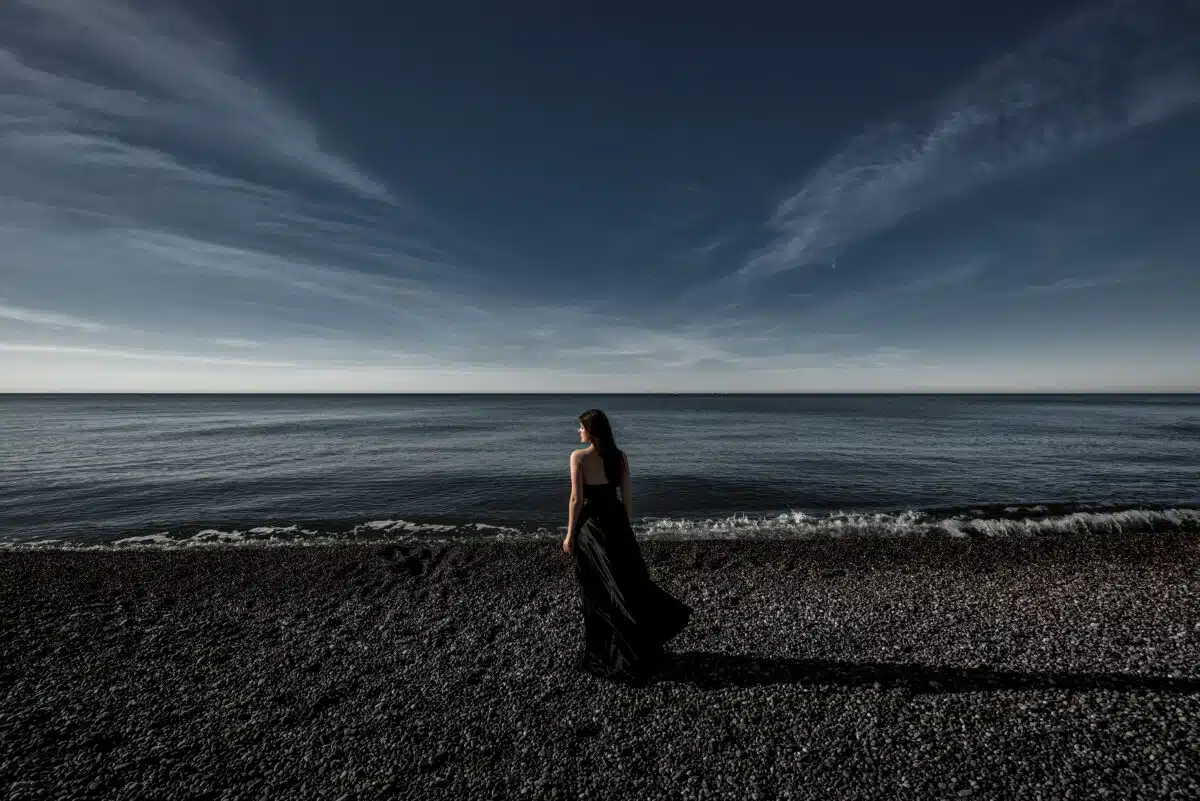
“The Mystic Sea” by Paul Laurence Dunbar
The smell of the sea in my nostrils,
The sound of the sea in mine ears;
The touch of the spray on my burning face,
Like the mist of reluctant tears.
The blue of the sky above me,
The green of the waves beneath;
The sun flashing down on a gray-white sail
Like a scimitar from its sheath.
And ever the breaking billows,
And ever the rocks’ disdain;
And ever a thrill in mine inmost heart
That my reason cannot explain.
So I say to my heart, “Be silent,
The mystery of time is here;
Death’s way will be plain when we fathom the main,
And the secret of life be clear.”
“Dreams” by Paul Laurence Dunbar
Dream on, for dreams are sweet:
Do not awaken!
Dream on, and at thy feet
Pomegranates shall be shaken.
Who likeneth the youth
Of life to morning?
‘Tis like the night in truth,
Rose-coloured dreams adorning.
The wind is soft above,
The shadows umber.
(There is a dream called Love.)
Take thou the fullest slumber!
In Lethe’s soothing stream,
Thy thirst thou slakest.
Sleep, sleep; ‘t is sweet to dream.
Oh, weep when thou awakest!
“Forever” by Paul Laurence Dunbar
I had not known before
Forever was so long a word.
The slow stroke of the clock of time
I had not heard.
‘Tis hard to learn so late;
It seems no sad heart really learns,
But hopes and trusts and doubts and fears,
And bleeds and burns.
The night is not all dark,
Nor is the day all it seems,
But each may bring me this relief—
My dreams and dreams.
I had not known before
That Never was so sad a word,
So wrap me in forgetfulness—
I have not heard.

“Testament” by Sara Teasdale
I said, “I will take my life
And throw it away;
I who was fire and song
Will turn to clay.”
“I will lie no more in the night
With shaken breath,
I will toss my heart in the air
To be caught by Death.”
But out of the night I heard,
Like the inland sound of the sea,
The hushed and terrible sob
Of all humanity .
Then I said, “Oh who am I
To scorn God to his face?
I will bow my head and stay
And suffer with my race.”
“Dying” by Emily Dickinson
The sun kept setting, setting still;
No hue of afternoon
Upon the village I perceived, –
From house to house ‘ t was noon.
The dusk kept dropping, dropping still;
No dew upon the grass,
But only on my forehead stopped,
And wandered in my face.
My feet kept drowsing, drowsing still,
My fingers were awake;
Yet why so little sound myself
Unto my seeming make?
How well I knew the light before!
I could not see it now.
‘Tis dying, I am doing; but
I’m not afraid to know.
4 Stanza Poems About Life

Experience the colorful life journeys and intense emotions of our beloved poets through their most notable four-stanza poems.
Embark on your own journey of reflection and contemplation, exploring the complexities and beauty of human existence through vivid imagery and heartfelt words.
“Life and Song” by Richard E. Burton
Life is the seed one soweth,
Song is the springing flower;
Life is the tear that floweth,
Song is the happy hour.
For as the seed must tarry
Under the chilly mould,
Only to swell and carry
Savour in every fold;
And as the tear prepareth
Hearts for the coming bliss,
And by the pain it beareth
Widens the soul for this;
So will a seed of sorrow
Blossom my life along;
So will a tearful morrow
Write me a deeper song.
“Life’s Better Influences” by Anonymous
Better the song and the smile, my dear,
Better the song and the smile.
Brief is the time we may linger here,
Little avails either sigh or tear;
Better the song and the smile, my dear,
Better the song and the smile.
Better the laugh and the jest, my dear,
Better the laugh and the jest.
Sunshine of heart and of merry cheer,
Chasing the shadows that oft appear;
Better the laugh and the jest, my dear,
Better the laugh and the jest.
Better the word that is kind, my dear,
Better the word that
Speech that is cold and perchance severe
Well may be spared as we journey here;
Better the word that is kind, my dear,
Better the word that is kind.
Life’s but a day at the best, my dear,
Life’s but a day at the best.
Be your endeavour to brighten each year,
Making less frequent the sigh and the tear;
Life’s but a day at the best, my dear,
Life’s but a day at the best.
“Weeds” by Edna St. Vincent Millay
White with daisies and red with sorrel
And empty, empty under the sky!—
Life is a quest and love a quarrel—
Here is a place for me to lie.
Daisies spring from damnèd seeds,
And this red fire that here I see
Is a worthless crop of crimson weeds,
Cursed by farmers thriftily.
But here, unhated for an hour,
The sorrel runs in ragged flame,
The daisy stands, a bastard flower,
Like flowers that bear an honest name.
And here a while, where no wind brings
The baying of a pack athirst,
May sleep the sleep of blessed things
The blood too bright, the brow accurst.

“Glee! the great storm is over!” by Emily Dickinson
Glee! the great storm is over!
Four have recovered the land;
Forty gone down together
Into the boiling sand.
Ring, for the scant salvation!
Toll, for the bonnie souls,
Neighbor and friend and bridegroom,
Spinning upon the shoals!
How they will tell the shipwreck
When winter shakes the door,
Till the children ask, “But the forty?
Did they come back no more? “
Then a silence suffuses the story,
And a softness the teller’s eye;
And the children no further question,
And only the waves reply.
“Spring In War Time” by Sara Teasdale
I feel the Spring far off, far off,
The faint far scent of bud and leaf—
Oh how can Spring take heart to come
To a world in grief,
Deep grief?
The sun turns north, the days grow long,
Later the evening star grows bright—
How can the daylight linger on
For men to fight,
Still fight?
The grass is waking in the ground,
Soon it will rise and blow in waves —
How can it have the heart to sway
Over the graves,
New graves?
Under the boughs where lovers walked
The apple-blooms will shed their breath —
But what of all the lovers now
Parted by death,
Gray Death?
“Have you got a brook in your little heart” by Emily Dickinson
Have you got a brook in your little heart,
Where bashful flowers blow,
And blushing birds go down to drink,
And shadows tremble so?
And nobody knows, so still it flows,
That any brook is there;
And yet your little draught of life
Is daily drunken there.
Then look out for the little brook in March,
When the rivers overflow,
And the snows come hurrying from the hills,
And the bridges often go.
And later, in August it may be,
When the meadows parching lie,
Beware, lest this little brook of life
Some burning noon go dry!

“Summer Shower” by Emily Dickinson
A drop fell on the apple tree,
Another on the roof;
A half a dozen kissed the eaves,
And made the gables laugh.
A few went out to help the brook,
That went to help the sea.
Myself conjectured, Were they pearls,
What necklaces could be!
The dust replaced in hoisted roads,
The birds jocoser sung;
The sunshine threw his hat away,
The orchards spangles hung.
The breezes brought dejected lutes,
And bathed them in the glee;
The East put out a single flag,
And signed the fête away.
“Resurrection” by Emily Dickinson
‘T was a long parting, but the time
For interview had come;
Before the judgment-seat of God,
The last and second time
These fleshless lovers met,
A heaven in a gaze,
A heaven of heavens, the privilege
Of one another’s eyes.
No lifetime set on them,
Apparelled as the new
Unborn, except they had beheld,
Born everlasting now.
Was bridal e’er like this?
A paradise, the host,
And cherubim and seraphim
The most familiar guest.
“There’s a certain slant of light” by Emily Dickinson
There’s a certain slant of light,
On winter afternoons,
That oppresses, like the weight
Of cathedral tunes.
Heavenly hurt it gives us;
We can find no scar,
But internal difference
Where the meanings are.
None may teach it anything,
‘Tis the seal, despair, –
An imperial affliction
Sent us of the air.
When it comes, the landscape listens,
Shadows hold their breath;
When it goes, ‘ t is like the distance
On the look of death.

“Thou Art My Lute” by Paul Laurence Dunbar
Thou art my lute, by thee I sing,—
My being is attuned to thee.
Thou settest all my words a-wing,
And meltest me to melody.
Thou art my life, by thee I live,
From thee proceed the joys I know;
Sweetheart, thy hand has power to give
The meed of love—the cup of woe.
Thou art my love, by thee I lead
My soul the paths of light along,
From vale to vale, from mead to mead,
And home it in the hills of song.
My song, my soul, my life, my all,
Why need I pray or make my plea,
Since my petition cannot fall;
For I ‘m already one with thee!
“Ye Mariners Of England” by Thomas Campbell
I.
Ye mariners of England!
That guard our native seas;
Whose flag has braved, a thousand years,
The battle and the breeze!
Your glorious standard launch again,
To match another foe!
And sweep through the deep
While the stormy winds do blow;
While the battle rages loud and long,
And the stormy winds do blow.
II.
The spirits of your fathers
Shall start from every wave !! ——
For the deck it was their field of fame,
And ocean was their grave.
Where Blake and mighty Nelson fell
Your manly hearts shall glow,
As ye sweep through the deep
While the stormy winds do blow—
While the battle rages loud and long,
And the stormy winds do blow.
III.
Britannia needs no bulwarks,
No towers along the steep;
Her march is o’er the mountain-wave,
Her home is on the deep.
With thunders from her native oak
She quells the floods below,
As they roar on the shore
When the stormy winds do blow–
When the battle rages loud and long,
And the stormy winds do blow.
IV.
The meteor flag of England
Shall yet terrific burn,
Till danger’s troubled night depart,
And the star of peace return.
Then, then, ye ocean-warriors!
Our song and feast shall flow
To the fame of your name,
When the storm has ceased to blow–
When the fiery fight is heard no more,
And the storm has ceased to blow.
“Song Of Death” by Robert Burns
Farewell, thou fair day, thou green earth, and ye skies,
Now gay with the bright setting sun ;
Farewell loves and friendships, ye dear tender ties—
Our race of existence is run!
Thou grim King of Terrors, thou life’s gloomy foe!
Go, frighten the coward and slave;
Go, teach them to tremble, fell tyrant ! but know
No terrors hast thou to the brave!
Thou strik’st the dull peasant-he sinks in the dark,
Nor saves e’en the wreck of a name;
Thou strik’st the young hero—a glorious mark!
He falls in the blaze of his fame!
In the field of proud honour-our swords in our hands,
Ourking and our country to save—
While victory shines on life’s last ebbing sands,
Oh! who would not die with the brave?

“Song” by Thomas Moore
Mary, I believed thee true,
And I was blest in thus believing;
But now I mourn that e’er I knew
A girl so fair and so deceiving!
Fare thee well!
Few have ever lov’d like me, –
Oh! I have lov’d thee too sincerely!
And few have e’er deceiv’d like thee, —
Alas! deceiv’d me too severely!
Fare thee well!
Fare thee well! yet think awhile
On one whose bosom bleeds to doubt thee;
Who now would rather trust that smile,
And die with thee than live without thee!
Fare thee well!
Fare thee well! I’ll think of thee,
Thou leav’st me many a bitter token;
For see, distracting woman! see,
My peace is gone, my heart is broken! —
Fare thee well!
“On The Death Of A Lady” by Thomas Moore
Sweet spirit! if thy airy sleep
Nor sees my tears, nor hears my sighs,
Oh! I will weep, in lux’ry weep,
Till the last heart’s-drop fills mine eyes.
But if thy sainted soul can feel,
And mingles in our misery;
Then, then, my breaking heart I’ll seal
Thou shalt not hear one sigh from me!
The beam of morn was on the stream,
But sullen clouds the day deform:
Thou wert, indeed, that morning beam,
And death, alas! that sullen storm.
Thou wert not form’d for living here,
For thou wert kindred with the sky;
Yet, yet we held thee all so dear,
We thought thou wert not form’d to die.
“The Heart’s Eden” by David R. Aitken
Full many a day which darkly dawns
And shadows forth a world of cares,
With sudden light grows clear and bright,
And Noon a sun-gold crownlet wears.
Thus shall it be with eyes tear- wet,
The heart shall find its Eden yet.
Come shine or shade, come joy or woe,
To cheer or sadden fleeting hours,
A little while and life shall smile,
And all the earth be decked with flowers.
For all who on this weeping earth
Grow old beneath the toil and pain,
At night or noon, or late or soon,
Shall find the heart grow young again.
The brightest hours are still to come,
The fairest days, the noblest years;
For shining skies and sunny eyes
Shall bid a long farewell to tears;
Through Love’s bright gates wide open set,
The heart shall find its Eden yet.
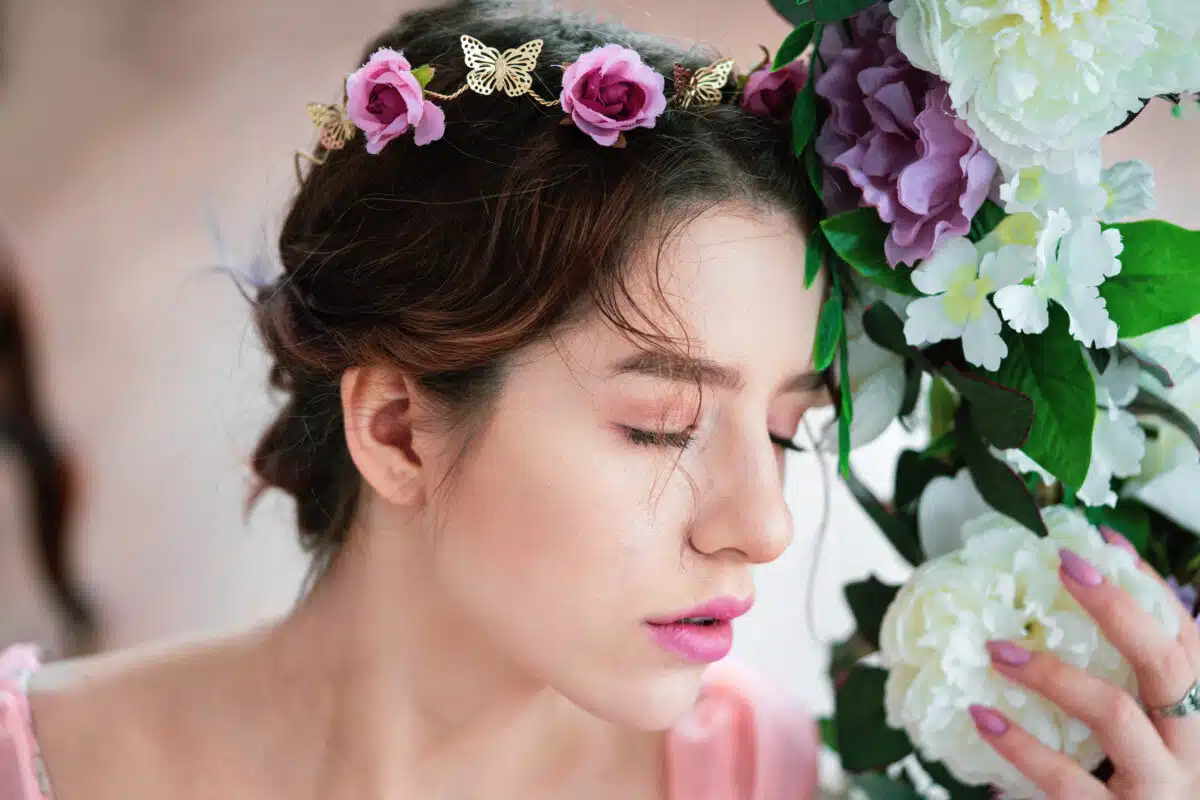
“Lost Light” by Edward S. Martin in Scribner’s
I cannot make her smile come back-
That sunshine of her face,
That used to make this worn earth seem,
At times, so gay a place.
The same dear eyes look out at me,
The features are the same,
But, oh, the smile is out of them,
And I must be to blame.
Sometimes I see it still; I went
With her the other day,
To meet a long missed friend, and while
We still were on the way,
Her confidence in waiting love
Brought back for me to see,
That old-time love-light to her eyes
That will not shine for me.
They tell me money waits for me,
They say I might have fame;
I like those gewgaws quite as well
As others like those same.
But I care not for what I have,
Nor just for what I lack,
One tithe as much as my heart longs
To call that lost light back.
Come back, dear banished smile, come back!
And into exile drive
All thoughts, and aims, and jealous hopes
That in thy stead would thrive.
Who wants the earth without its sun?
And what has life for me
That’s worth a thought, if, as its price,
It leaves me robbed of thee?
“One Of Us Two” by Ella Wheeler Wilcox
The day will dawn when one of us shall hearken
In vain to hear a voice that has grown dumb,
And moons will fade, noons pale and shadows darken-
While sad eyes watch for feet that never come.
One of us two must some time face existence
Alone with memories that but sharpen pain,
And these sweet days shall shine back in the distance,
Like dreams of summer dawns in nights of rain.
One of us two, with tortured heart half broken,
Shall read long treasured letters through salt tears,
Shall kiss with anguished lips each cherished token
That speaks of those love-crowned delicious years.
One of us two shall find all light, all beauty,
All joy on earth a tale for ever done;
Shall know henceforth that life means only duty,
O, God! O, God! have pity on that one.
“A Gem Of The Heart” by Edith M. Thomas
Joy met Sorrow in a place
Where the branches interlace,
Very secret, still, and sweet,
Safe from all profaning feet.
“Why art here?” Joy, startled, cried;
“Why art here? ” gray Sorrow sighed.
“I came here to weep,” said Joy.
“Tears are ever my employ,”
Murmured Sorrow. Yet I see,
Tears as grateful were to thee.
Come, young novice, and be taught
How to ease thy heart o’er-fraught.”
Joy sat down at Sorrow’s feet,
And was taught a lesson sweet.
Fain would he make kind return;
“Sorrow, art too old to learn?
Nay? Then tarry yet awhile,
Till I have taught thee how to smile.”
Since that hour they both have been
Bound as by mysterious kin;
Since that hour they so exchange
Tears and smiles, ’tis nothing strange
If sometimes a puzzled heart
Scarcely can tell the twain apart.

“The Cry Of The Dreamer” by John Boyle O’Reilly
I am tired of planning and toiling
In the crowded hives of men;
Heart weary of building and spoiling,
And spoiling and building again.
And I long for the dear old river
Where I dreamed my youth away;
For a dreamer lives for ever,
And a toiler dies in a day.
I am sick of the showy seeming
Of a life that is half a lie,
Of the faces lined with scheming,
In the throng that hurries by.
Fromthe sleepless thought’s endeavour,
I would go where the children play;
For a dreamer lives for ever,
And a toiler dies in a day.
I feel no pride, but pity
For the burdens the rich endure;
There is nothing sweet in the city
But the patient lives of the poor.
Oh, the little hands so skilful,
And the child mind choked with weeds,
The daughter’s heart grown wilful,
And the father’s heart that bleeds.
No, no! from the street’s rude bustle,
From trophies of mart and stage,
I would fly to the woods’ low rustle,
And the meadows’ kindly page.
Let me dream as of old by the river,
And be loved for the dream alway;
For a dreamer lives for ever,
And a toiler dies in a day.
“New Every Morning” by Susan Coolidge
Every day is a fresh beginning,
Every morning is the world made new.
You who are weary of sorrow and sinning,
Here is a beautiful hope for you—
A hope for me and a hope for you.
All the past things are past and over,
The tasks are done, and the tears are shed.
Yesterday’s errors let yesterday cover;
Yesterday’s wounds, which smarted and bled,
Are healed with the healing which night has shed.
Yesterday now is a part of forever,
Bound up in a sheaf which God holds tight,
With glad days and sad days and bad days which never
Shall visit us more with their bloom and their blight,
Their fulness of sunshine or sorrowful night.
Let them go since we cannot revive them,
Cannot undo, and cannot atone;
God in His mercy receive, forgive them;
Only the new days are our own,
To-day is ours and to-day alone.
“The Three Cherry Trees” by Walter De La Mare
There were three cherry trees once,
Grew in a garden all shady;
And there for delight of so gladsome a sight,
Walked a most beautiful lady,
Dreamed a most beautiful lady.
Birds in those branches did sing,
Blackbird and throstle and linnet,
But she walking there was by far the most
fair—
Lovelier than all else within it,
Blackbird and throstle and linnet.
But blossoms to berries do come,
All hanging on stalks light and slender,
And one long summer’s day charmed that
lady away,
With vows sweet and merry and tender;
A lover with voice low and tender.
Moss and lichen the green branches deck;
Weeds nod in its paths green and shady :
Yet a light footstep seems there to wander in
dreams,
The ghost of that beautiful lady,
That happy and beautiful lady.

“Sleep” by Walter De La Mare
Men all, and birds, and creeping beasts,
When the dark of night is deep,
From the moving wonder of their lives
Commit themselves to sleep.
Without a thought, or fear, they shut
The narrow gates of sense;
Heedless and quiet, in slumber turn
Their strength to impotence.
The transient strangeness of the earth
Their spirits no more see:
Within a silent gloom withdrawn,
They slumber in secrecy.
Two worlds they have a globe forgot
Wheeling from dark to light;
And all the enchanted realm of dream
That burgeons out of night.
“The Sum” by Paul Laurence Dunbar
A little dreaming by the way,
A little toiling day by day;
A little pain, a little strife,
A little joy,—and that is life.
A little short-lived summer’s morn,
When joy seems all so newly born,
When one day’s sky is blue above,
And one bird sings,—and that is love.
A little sickening of the years,
The tribute of a few hot tears
Two folded hands, the failing breath,
And peace at last,—and that is death.
Just dreaming, loving, dying so,
The actors in the drama go—
A flitting picture on a wall,
Love, Death, the themes; but is that all?
4 Stanza Poems That Rhyme

Enjoy these delightful four-stanza poems, designed to satisfy your craving for rhythm and melody.
In this captivating category, we present a collection of poetic treasures, each consisting of four stanzas that harmoniously rhyme, creating a symphony of words that will leave you mesmerized and longing for more.
“The Dream” by Edna St. Vincent Millay
Love, if I weep it will not matter,
And if you laugh I shall not care;
Foolish am I to think about it,
But it is good to feel you there.
Love, in my sleep I dreamed of waking,—
White and awful the moonlight reached
Over the floor, and somewhere, somewhere,
There was a shutter loose,—it screeched!
Swung in the wind,—and no wind blowing!—
I was afraid, and turned to you,
Put out my hand to you for comfort,—
And you were gone! Cold, cold as dew,
Under my hand the moonlight lay!
Love, if you laugh I shall not care,
But if I weep it will not matter,—
Ah, it is good to feel you there!
“Daffodils” by William Wordsworth
I wandered, lonely as a cloud
That floats on high o’er vales and hills,
When all at once I saw a crowd –
A host of golden daffodils
Beside the lake, beneath the trees,
Fluttering and dancing in the breeze.
Continuous as the stars that shine
And twinkle on the milky way,
They stretched in never-ending line
Along the margin of the bay:
Ten thousand saw I, at a glance,
Tossing their heads in sprightly dance.
The waves beside them danced, but they
Outdid the sparkling waves in glee;
A poet could not but be gay,
In such a jocund company;
I gazed —and gazed —but little thought
What wealth the show to me had brought:
For oft, when on my couch I lie,
In vacant or in pensive mood,
The flash upon that inward eye
Which is the bliss of solitude,
And then my heart with pleasure fills,
And dances with the daffodils.
“Summer’s Armies” by Emily Dickinson
Some rainbow coming from the fair!
Some vision of the world Cashmere
I confidently see!
Or else a peacock’s purple train,
Feather by feather, on the plain
Fritters itself away!
The dreamy butterflies bestir,
Lethargic pools resume the whir
Of last year’s sundered tune.
From some old fortress on the sun
Baronial bees march, one by one,
In murmuring platoon!
The robins stand as thick to-day
As flakes of snow stood yesterday,
On fence and roof and twig.
The orchis binds her feather on
For her old lover, Don the Sun,
Revisiting the bog!
Without commander, countless, still,
The regiment of wood and hill
In bright detachment stand.
Behold ! Whose multitudes are these?
The children of whose turbaned seas,
Or what Circassian land?

“The Kiss” by Sara Teasdale
Before you kissed me only winds of heaven
Had kissed me, and the tenderness of rain-
Now you have come, how can I care for kisses
Like theirs again?
I sought the sea, she sent her winds to meet me ,
They surged about me singing of the south-
I turned my head away to keep still holy
Your kiss upon my mouth.
And swift sweet rains of shining April weather
Found not my lips where living kisses are;
I bowed my head lest they put out my glory
As rain puts out a star.
I am my love’s and he is mine forever,
Sealed with a seal and safe forevermore-
Think you that I could let a beggar enter
Where a king stood before?
“Poems Unwritten” by Mary H. C. Booth
There are poems unwritten, and songs unsung,
Sweeter than any that ever were heard-
Poems that wait for an angel tongue,
Songs that but long for a Paradise bird.
Poems that ripple through lowliest lives-
Poems unnoted and hidden away
Down in the souls where the beautiful thrives,
Sweetly as flowers in the airs of the May.
Poems that only the angels above us,
Looking down deep in our hearts may behold–
Felt, though unseen, by the beings who love us,
Written on lives as in letters of gold.
Sing to my soul the sweet song that thou livest!
Read methe poem that never was penned-
The wonderful idyl of life that thou givest
Fresh from thy spirit, O, beautiful friend!
“Be My Sweetheart” by Eugene Field
Sweetheart, be my sweetheart
When birds are on the wing,
When bee and bud and babbling flood
Bespeak the birth of spring,
Come, sweetheart, be my sweetheart
And wear this posy-ring!
Sweetheart, be my sweetheart
In the mellow golden glow
Of earth aflush with the gracious blush
Which the ripening fields foreshow;
Dear sweetheart, be my sweetheart,
As into the noon we go!
Sweetheart, be my sweetheart
When falls the bounteous year,
When fruit and wine of tree and vine
Give us their harvest cheer;
Oh, sweetheart, be my sweetheart,
For winter it draweth near.
Sweetheart, be my sweetheart
When the year is white and old,
When the fire of youth is spent, forsooth,
And the hand of age is cold;
Yet, sweetheart, be my sweetheart
Till the year of our love be told!

“A Last Confession” by William Butler Yeats
What lively lad most pleasured me
Of all that with me lay?
I answer that I gave my soul
And loved in misery,
But had great pleasure with a lad
That I loved bodily.
Flinging from his arms I laughed
To think his passion such
He fancied that I gave a soul
Did but our bodies touch,
And laughed upon his breast to think
Beast gave beast as much.
I gave what other women gave
That stepped out of their clothes.
But when this soul, its body off,
Naked to naked goes,
He it has found shall find therein
What none other knows,
And give his own and take his own
And rule in his own right;
And though it loved in misery
Close and cling so tight,
There’s not a bird of day that dare
Extinguish that delight.
“The Old Maid” by Sara Teasdale
I saw her in a Broadway car,
The woman I might grow to be;
I felt my lover look at her
And then turn suddenly to me.
Her hair was dull and drew no light
And yet its color was as mine;
Her eyes were strangely like my eyes
Tho ‘ love had never made them shine.
Her body was a thing grown thin,
Hungry for love that never came;
Her soul was frozen in the dark
Unwarmed forever by love’s flame.
I felt my lover look at her
And then turn suddenly to me, –
His eyes were magic to defy
The woman I shall never be.
“A Summer Wish” by Christina G. Rossetti
Live all thy sweet life thro’,
Sweet Rose, dew-sprent,
Drop down thine evening dew
To gather it anew
When day is bright:
I fancy thou wast meant
Chiefly to give delight.
Sing in the silent sky,
Glad soaring bird;
Sing out thy notes on high
To sunbeam straying by
Or passing cloud;
Heedless if thou art heard
Sing thy full song aloud.
Oh that it were with me
As with the flower;
Bloom ing on its own tree
For butterfly and bee
Its summer morns:
That I might bloom mine hour
A rose in spite of thorns.
Oh that my work were done
As birds that soar,
Rejoicing in the sun:
That when my time is run
And daylight too,
I so might rest once more
Cool with refreshing dew.
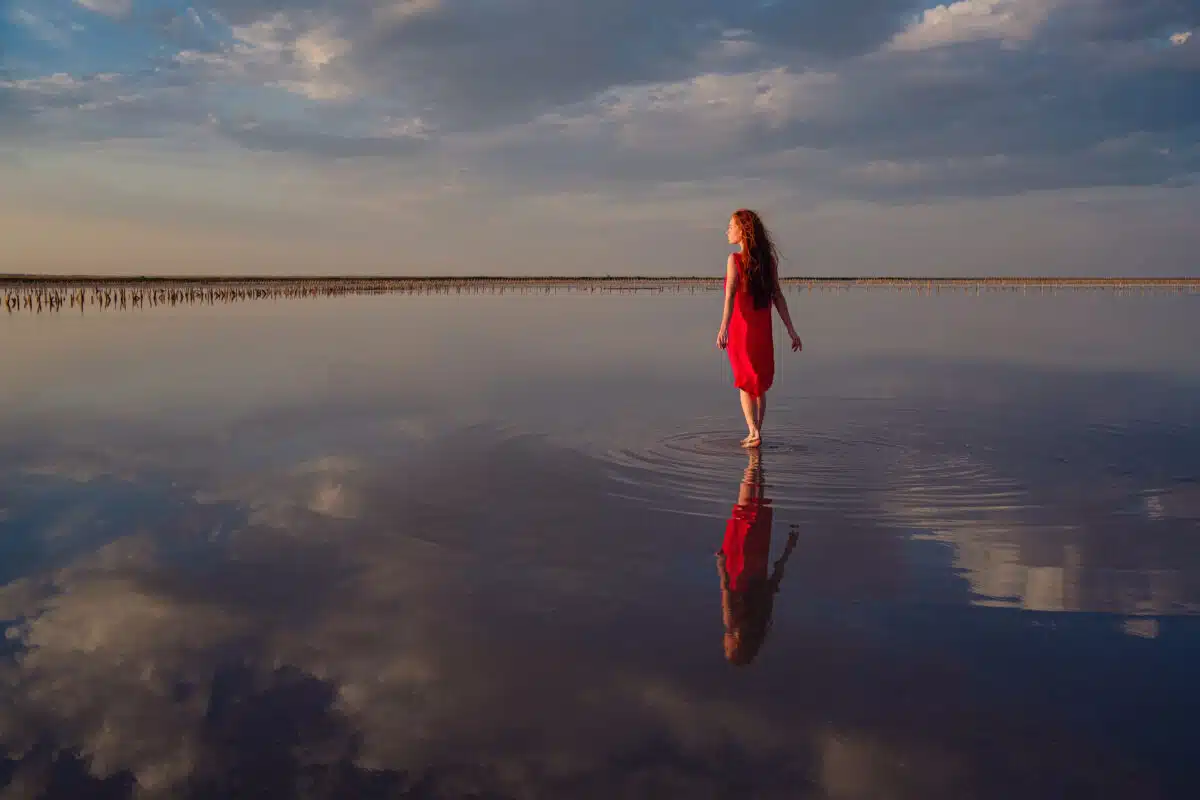
“The Rose Of Peace” by William Butler Yeats
If Michael, leader of God’s host
When Heaven and Hell are met,
Looked down on you from Heaven’s door-post
He would his deeds forget.
Brooding no more upon God’s wars
In his Divine homestead,
He would go weave out of the stars
A chaplet for your head.
And all folk seeing him bow down,
And white stars tell your praise,
Would come at last to God’s great town,
Led on by gentle ways;
And God would bid His warfare cease.
Saying all things were well;
And softly make a rosy peace,
A peace of Heaven with Hell.
“Dream Land” by Christina G. Rossetti
Where sunless rivers weep
Their waves into the deep,
She sleeps a charmèd sleep :
Awake her not.
Led by a single star,
She came from very far
To seek where shadows are
Her pleasant lot.
She left the rosy morn,
She left the fields of corn,
For twilight cold and lorn
And water springs.
Through sleep, as through a veil,
She sees the sky look pale,
And hears the nightingale
That sadly sings.
Rest, rest, a perfect rest
Shed over brow and breast;
Her face is toward the west,
The purple land.
She cannot see the grain
Ripening on hill and plain;
She cannot feel the rain
Upon her hand.
Rest, rest, for evermore
Upon a mossy shore;
Rest, rest at the heart’s core
Till time shall cease:
Sleep that no pain shall wake,
Night that no morn shall break
Till joy shall overtake
Her perfect peace.
“The Indian To His Love” by William Butler Yeats
The island dreams under the dawn
And great boughs drop tranquillity;
The peahens dance on a smooth lawn,
A parrot sways upon a tree,
Raging at his own image in the enamelled sea.
Here we will moor our lonely ship
And wander ever with woven hands,
Murmuring softly lip to lip,
Along the grass, along the sands,
Murmuring how far away are the unquiet lands:
How we alone of mortals are
Hid under quiet bows apart,
While our love grows an Indian star,
A meteor of the burning heart,
One with the tide that gleams, the wings that gleam and dart,
The heavy boughs, the burnished dove
That moans and sighs a hundred days:
How when we die our shades will rove,
When eve has hushed the feathered ways,
With vapoury footsole among the water’s drowsy blaze.
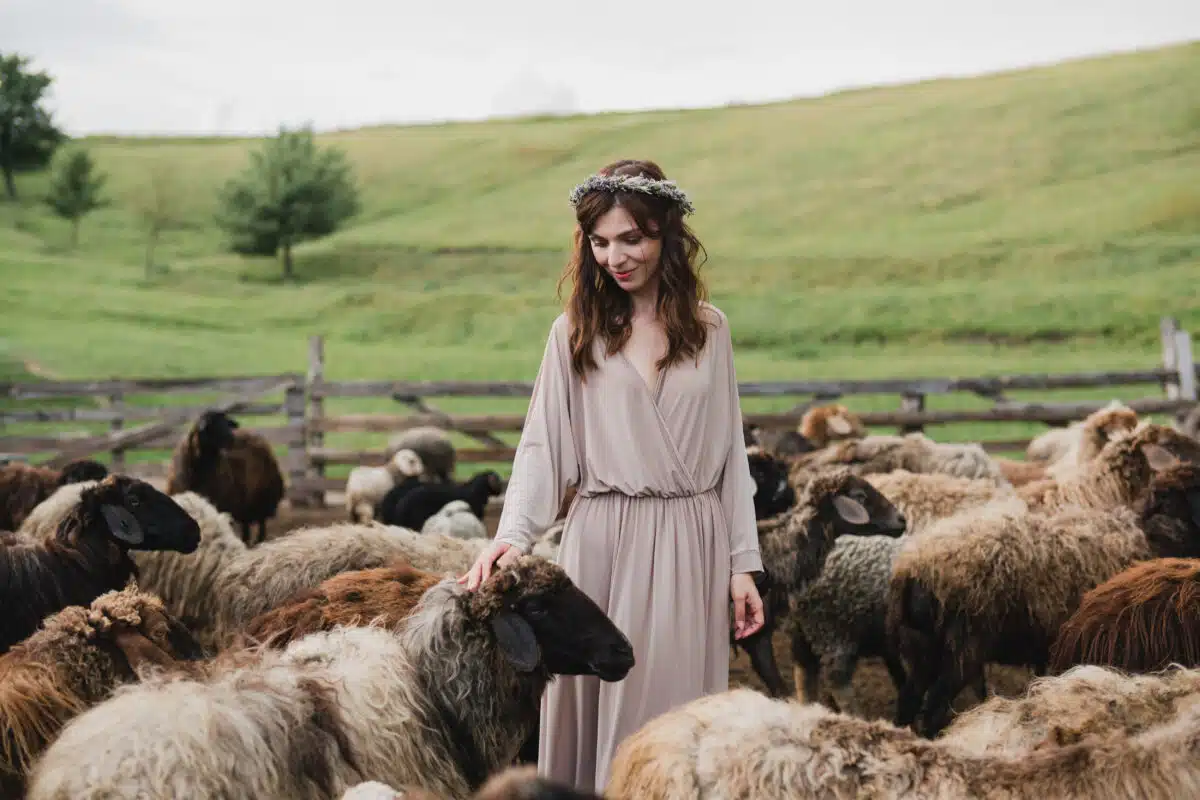
“The Lambs of Grasmere, 1860” by Christina G. Rossetti
The upland flocks grew starved and thinned:
Their shepherds scarce could feed the lambs
Whose milkless mothers butted them,
Or who were orphaned of their dams.
The lambs athirst for mother’s milk
Filled all the place with piteous sounds:
Their mothers’ bones made white for miles
The pastureless wet pasture grounds.
Day after day, night after night,
From lamb to lamb the shepherds went,
With teapots for the bleating mouths
Instead of nature’s nourishment.
The little shivering gaping things
Soon knew the step that brought them aid,
And fondled the protecting hand,
And rubbed it with a woolly head.
Then, as the days waxed on to weeks,
It was a pretty sight to see
These lambs with frisky heads and tails
Skipping and leaping on the lea,
Bleating in tender, trustful tones,
Resting on rocky crag or mound,
And following the beloved feet
That once had sought for them and found.
These very shepherds of their flocks,
These loving lambs so meek to please,
Are worthy of recording words
And honour in their due degrees:
So I might live a hundred years,
And roam from strand to foreign strand,
Yet not forget this flooded spring
And scarce-saved lambs of Westmoreland.
“The One Gray Hair” by Walter Savage Landor
The wisest of the wise
Listen to pretty lies,
And love to hear them told;
Doubt not that Solomon
Listened to many a one —
Some in his youth, and more when he grew old.
I never sat among
The choir of wisdom’s song,
But pretty lies loved I
As much as any king –
When youth was on the wing,
And (must it then he told?) when youth had quite
gone by.
Alas! and I have not
The pleasant hour forgot,
When one pert lady said
“O, Landor! I am quite
Bewildered with affright;
I see (sit quiet now!) a white hair on your head!”
Another, more benign,
Drew out that hair of mine,
And in her own dark hair
Pretended she had found
That one, and twirled it round.
Fair as she was, she never was so fair.
“Ode To Peace” by William Cowper
Come, peace of mind, delightful guest!
Return, and make thy downy nest
Once more in this sad heart:
Nor riches I nor power pursue,
Nor hold forbidden joys in view;
We therefore need not part.
Where wilt thou dwell, if not with me
From avarice and ambition free,
And pleasure’s fatal wiles?
For whom, alas! dost thou prepare
The sweets that I was wont to share,
The banquet of thy smiles ?
The great, the gay, shall they partake
The heaven that thou alone canst make?
And wilt thou quit the stream
That murmurs through the dewy mead,
The grove and the sequester’d shed
To be a guest with them?
For thee I panted, thee I prized,
For thee I gladly sacrificed
Whate’er I loved before;
And shall I see thee start away,
And helpless, hopeless, hear thee say—
Farewell! we meet no more?

“Lines” by Thomas Moore
Written in a storm at sea.
Oh! there’s a holy calm profound
In awe like this, that ne’er was given
To rapture’s thrill;
‘Tis as a solemn voice from heaven,
And the soul, listening to the sound,
Lies mute and still!
“Tis true, it talks of danger nigh,
Of slumbering with the dead to-morrow
In the cold deep,
Where pleasure’s throb or tears of sorrow
No more shall wake the heart or eye,
But all must sleep!
Well! -there are some, thou stormy bed,
To whom thy sleep would be a treasure;
Oh! most to him,
Whose lip hath drain’d life’s cup of pleasure,
Nor left one honey drop to shed
Round misery’s brim.
Yes-he can smile serene at death:
Kind Heaven! do thou but chase the weeping
Of friends who love him;
Tell them that he lies calmly sleeping
Where sorrow’s sting or envy’s breath
No more shall move him.
“Bright Be The Place Of Thy Soul” by Lord Byron
Bright be the place of thy soul!
No lovelier spirit than thine
E’er burst from its mortal control,
In the orbs of the blessed to shine.
On earth thou wert all but divine,
As thy soul shall immortally be;
And our sorrow may cease to repine,
When we know that thy God is with thee.
Light be the turf of thy tomb!
May its verdure like emeralds be:
There should not be the shadow of gloom
In aught that reminds us of thee.
Young flowers and an evergreen tree
May spring from the spot of thy rest:
But nor cypress nor yew let us see;
For why should we mourn for the blest?
“When We Two Parted” by Lord Byron
When we two parted
In silence and tears,
Half broken-hearted
To sever for years,
Pale grewthy cheek and cold,
Colder thy kiss;
Truly that hour foretold
Sorrow to this.
The dew of the morning
Sunk chill on my brow
It felt like the warning
Of what I feel now.
Thy vows are all broken,
And light is thy fame;
I here thy name spoken,
And share in its shame.
They name thee before me,
A knell to mine ear;
A shudder comes o’er me
Why wert thou so dear?
They know not I knew thee,
Who knewthee too well:-
Long, long shall I rue thee,
Too deeply to tell.
In secret we metIn silence I grieve,
That thy heart could forget,
Thy spirit deceive.
If I should meet thee
After long years,
How should I greet thee?
With silence and tears.

“Song Of The Bell” by Henry Wadsworth Longfellow
Bell! thou soundest merrily,
When the bridal party
To the church doth hie!
Bell! thou soundest solemnly,
When, on Sabbath morning,
Fields deserted lie!
Bell! thou soundest merrily;
Tellest thou at evening,
Bed-time draweth nigh!
Bell! thou soundest mournfully;
Tellest thou the bitter
Parting hath gone by!
Say! how canst thou mourn?
How canst thou rejoice?
Thou art but metal dull!
And yet all our sorrowings,
And all our rejoicings,
Thou dost feel them all!
God hath wonders many,
Which we cannot fathom,
Placed within thy form!
When the heart is sinking,
Thou alone canst raise it,
Trembling in the storm!
“The Robin” by William Bell Scott
Crumbs for the robin; well he knew
The click of that old garden gate,
Among the leaves he somewhere flew,
Nor came to breakfast ever late.
From twig to twig he ventures near,
With sidelong bright dark eye he comes,
Not for the poems but the crumbs,
We take good care he need not fear.
Is that the garden gate again?
Comes the maid to gather peas?
It is the gardener, well-known swain,
Our robin likes old friends like these.
But hark! that click once more, we see
A caller feathered for the day,
He knows as well, it seems, as we
The time is come to fly away.
“Together” by Ella Wheeler Wilcox
We two in the fever and fervour and glow
Of life’s high tide have rejoiced together;
We have looked out over the glittering snow,
And knew we were dwelling in Summer weather.
For the seasons are made by the heart, I hold,
And not by outdoor heat or cold.
We two in the shadows of pain and woe,
Have journeyed together in dim, dark places,
Where black robed Sorrow walked to and fro,
And Fear and Trouble with phantom faces
Pered out upon us and froze our blood,
Though June’s fair roses were all in bud.
We two have measured all depths, all heights,
We have bathed in tears, we have sunned in laughter,
We have known all sorrows and all delights-
They never could keep us apart hereafter.
Wherever your spirit was sent I know
I would defy earth-or heaven-to go.
If they took my soul into Paradise,
And told me I must be content without you,
I would weary them so with my lonesome cries,
And the ceaseless questions I asked about you
They would open the gates and set me free,
Or else they would find you and bring you to me.
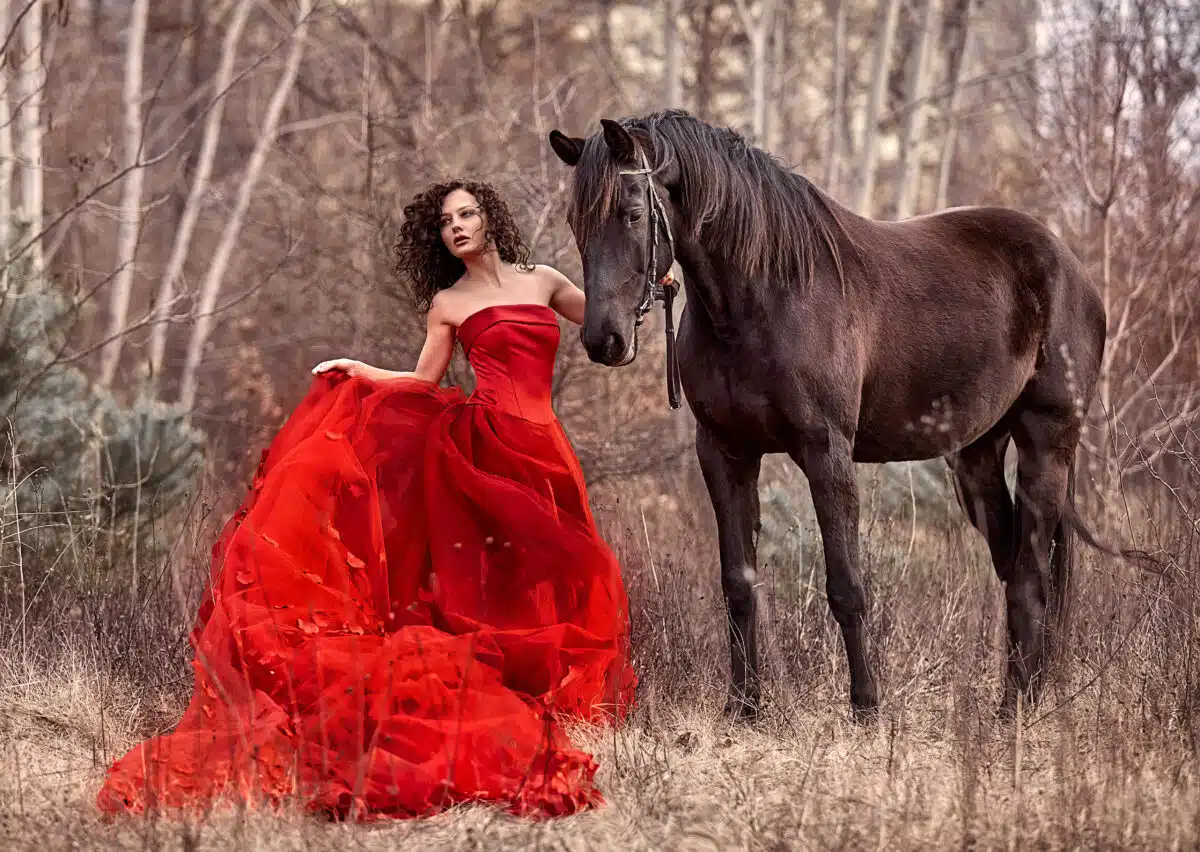
“Good-bye, Sweetheart” by Lida Lewis Watson
Good-bye, Sweetheart!
The thought that grieves in my breast
Is but an arrow winging swift and free,
That takes not life away, but, breaking all its rest,
Must separate us ever-me and thee!
I wonder doth it grieve thy soul, as mine, to part?
To say good-bye, sweetheart
Good-bye, sweetheart,
As summer leaves her restful calm on earth-
Her breathless silence, like a dream of peace,
Ev’n so Iwould that in thy path some gentle birth
Of sacred recollections, when shall cease
The music of to-day, may aught of bliss impart,
To comfort thee, sweetheart.
Good-bye, sweetheart!
I hear the vesper voices call-
But yet thy soul’s dear grace I cannot lose
We view our paths which lie apart ; the tears must fall,
We can but pray, our ways we may not choose,
But heaven waits for both beyond, where thou and I
Need never say good-bye!
Sweetheart, good-bye!
Before us fall such strange, strange mists
Where once there was but sunshine and fair skies,
I reach my hands to thee in vain-for Fate insists
Love’s links must be unclasped; so close thine eyes
While on thy brow I lay my last and tender touch, and sigh
To breathe, sweetheart, good-bye!
“At Last” by Thomas H. Muzzey
Ah, notthe first love, dearest-but the last.
(So? Who can tell ?)
The tides of youth run fast-run fast ;
The buds upon the young trees shoot and swell,
Reckless of frosts. Well, well !
Let us not dwell, dear heart, on follies past.
For now, you know, the green and callow shoots
Of early Spring
Are dry and withered to the very roots.
They were Love’s first, faint, perfumed offering
Taking swift wing,
Leaving a fragrant memory, but no fruits.
We will not speak of them with smiling scorn,
They have made way
For the rich bloom and fruitage later born-
And born of spirit-not alone of clay,
Making our day
Glad with the freshness of perpetual morn.
Eternal Dear-let us believe it so,
And in our bliss
Let dull analysis and doubting go-
Content so long as in a rapturous kiss
Like this-my sweet-and this-
The fulness of celestial joy we know.
“Peace and Love” by Katharine P. Williams
Sweetheart, if Peace and Love were one,
How golden bright, from sun to sun,
The summer hours would come and go,
So darkened now with fear and woe-
If Peace and Love were one!
Ah! why, beneath the changing sky,
When Love pursues, doth fair Peace fly,
And at the portal of the heart
When young Love knocks, doth Peace depart-
Beneath the changing sky?
Yet if we ‘ twixt the twain must choose,
If either Peace or Love must lose,
Shall we not cry, “Come, Love, with Pain,
Though never Peace return again! “—
If ‘twixt the twain we choose?
Alas! not till life sighs, “Adieu!”
Not till the red rose bloom is through,
Comes Peace to lie upon Love’s breast,
With roses white to crown his rest–
Not till Life.sighs, “Adieu!”

“Go, Lovely Rose” by Edmund Waller
Go, lovely rose!
Tell her that wastes her time and me,
That now she knows,
When I resemble her to thee,
How fair and sweet she seems to be!
Tell her that’s young,
And shuns to have her graces spied,
That, hadst thou sprung
In deserts where no men abide,
Thou must have uncommended died.
Small is the worth
Of beauty from the light retired;
Bid her come forth,
Suffer herself to be desired,
And not blush so to be admired!
Then die! that she
The common fate of all things rare
May read in thee;
How small a part of time they share
That are so wondrous sweet and fair.
“What The Chimney Sang” by Bret Harte
Over the chimney the night wind sang,
And chanted a melody no one knew:
And the woman stopped, and her babe she tossed,
And thought of the one she had long since lost,
And said as her tear-drops back she forced,
“I hate the wind in the chimney.”
Over the chimney the night wind sang,
And chanted a melody no one knew;
And the children said, as they closer drew,
“‘Tis some witch that is cleaving the black night through,
“Tis a fairy trumpet that just then blew,
And we fear the wind in the chimney.’
Over the chimney the night wind sang,
And chanted a melody no one knew;
And the man, as he sat on his hearth below,
Said to himself, “It will surely snow,
And fuel is dear and wages low,
And I’ll stop the leak in the chimney.”
Over the chimney the night wind sang,
And chanted a melody no one knew;
But the poet listened and smiled , for he
Was man, and woman, and child, all three,
And said, “It is God’s own harmony,
This wind we hear in the chimney.’
“To Him Who Waits” by Edith S. Tupper
Many a castle I’ve built in Spain,
With turrets and domes that were passing fair,
But the first wild storm of wind and rain
Has proved my castles were made of air.
Many a fleet I have sent to sea,
Freighted with hopes and ambitions bright;
Never a ship has come back to me,
Though I’ve watched for them long by day and night.
But I sometimes think there will come a day
When my heart’s fond wishes I shall attain-
When, walled and towered in grand array,
Shall stand secure my castles in Spain.
And I look to see the sunset’s glow,
As it reddens the ocean miles on miles,
Shine on the ships that sailed long ago-
My ships coming back from the Fortunate Isles.
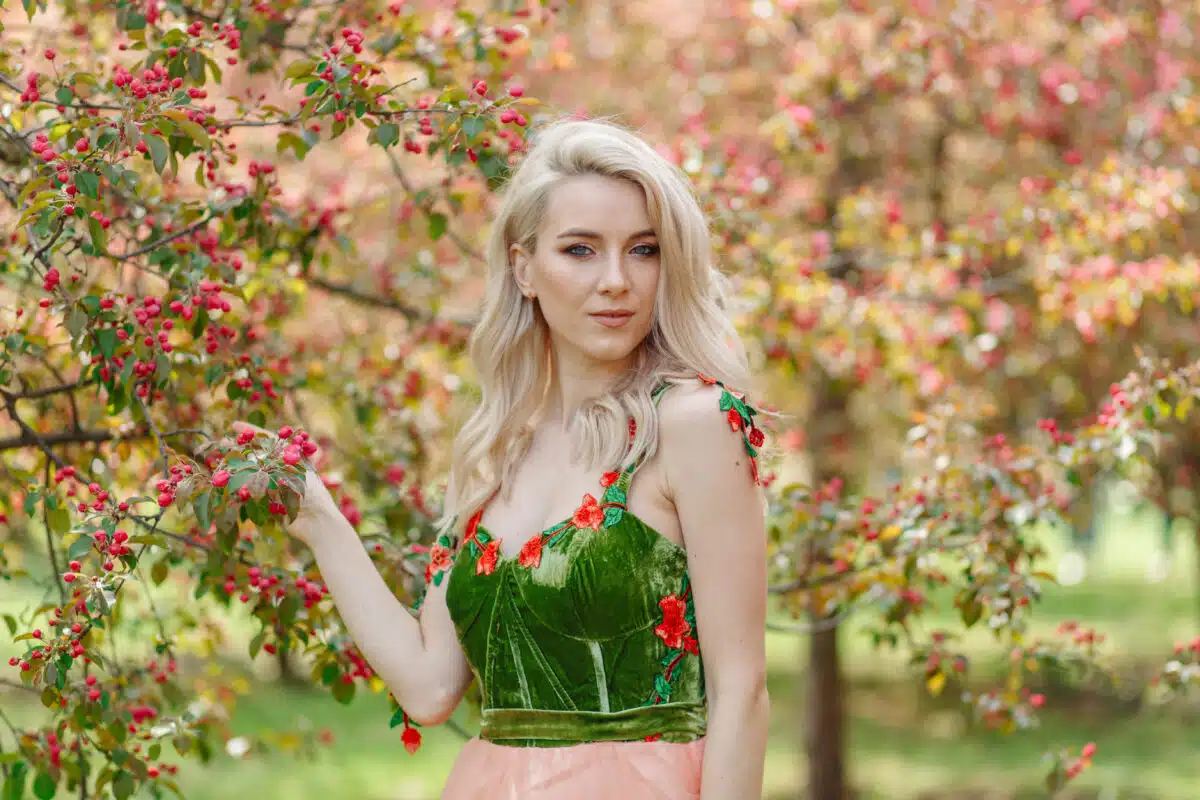
“The Witnesses” by Alfred Wood
Day by day in the opening meadow,
The cowslips swing their bells of gold;
And the young leaves throng like merry children,
The forest windows grim and old.
Day by day, with a blow that strengthens,
The sun god smites the springing corn;
Doubly cool are the dews of evening,
Doubly sweet is the breath of morn.
Day by day in the lower pastures
Heavier mists at twilight fall,
The sheaves stand thick on the short white stubble,
The peaches glow on the orchard wall.
Day by day, over hill and valley,
The snowflakes wing their passage slow,
Cold white ghosts of the forest children
Dead in the tangled brakes below.
“Love” by Adelaide Procter
I love, too, to be loved; all loving praise
Seems like a crown upon my life-to make
It better worth the giving, and to raise
Still nearer to your own the heart you take.
I love all good and noble souls; I heard
One speak of you but lately, and for days,
Only to think of it, my soul was stirred
In tender memory of such generous praise.
I love all those who love you ; all who owe
Comfort to you; and I can find regret
Even for those poorer hearts who once could know
And once could love you, and can now forget.
Will you be jealous? Did you guess before
I loved so many things!—still you the best.
Dearest, remember that I love you more,
Oh, more a thousand times, than all the rest!
“The Lily Of The Nile” by George Arnold
You know that great white lily—
That stately cup of creamy snow—
That rears an alabaster lamp
With broad green blade below?
Madge has, within her chamber,
This scion of Nilotian race,
To typify the purity
That reigns about the place.
One day, a bud, fresh opened,
Shone out a flower, full bloom and fair,
And Madge—it was a way of hers—
Bent down and kissed it there.
Her ripe, red lips touched softly
Upon the cup of creamy snow—
O would that I a lily were,
That Madge might kiss me so!

“Inland” by Edna St. Vincent Millay
People that build their houses inland,
People that buy a plot of ground
Shaped like a house, and build a house there,
Far from the sea-board, far from the sound
Of water sucking the hollow ledges,
Tons of water striking the shore,—
What do they long for, as I long for
One salt smell of the sea once more?
People the waves have not awakened,
Spanking the boats at the harbour’s head,
What do they long for, as I long for,—
Starting up in my inland bed,
Beating the narrow walls, and finding
Neither a window nor a door,
Screaming to God for death by drowning,—
One salt taste of the sea once more?
“Hepaticas” by Madison Julius Cawein
In the frail hepaticas—
That the early Springtide tossed,
Sapphire-like, along the ways
Of the woodlands that she crossed—
I behold, with other eyes,
Footprints of a dream that flies.
One who leads me; whom I seek:
In whose loveliness there is
All the glamour that the Greek
Knew as wind-borne Artemis.—
I am mortal. Woe is me!
Her sweet immortality!
Spirit, must I always fare,
Following thy averted looks?
Now thy white arm, now thy hair,
Glimpsed among the trees and brooks?
Thou who hauntest, whispering,
All the slopes and vales of Spring.
Cease to lure! or grant to me
All thy beauty! though it pain,
Slay with splendor utterly!
Flash revealment on my brain!
And one moment let me see
All thy immortality!
“Pax Vobiscum” by Madison Julius Cawein
I
I know that from thine eyes
The Spring her violets grew;
Those bits of April skies,
On which the green turf lies,
Whereon they blossom blue.
II
I know that Summer wrought
From thy sweet heart that rose,
With such faint fragrance fraught,-
Its pale, poetic thought
Of peace and deep repose.-
III
That Autumn, like some god,
From thy delicious hair,—
Lost sunlight ‘ neath the sod,—
Shot up this goldenrod
To toss it everywhere.
IV
That Winter from thy breast
The snowdrop’s whiteness stole—
Much kinder than the rest —
Thy innocence confessed,
The pureness of thy soul.

“Mirabile Dictu” by Madison Julius Cawein
I
There dwells a goddess in the West,
An Island in death-lonesome seas;
No towered towns are hers confessed,
No castled forts or palaces;
Hers, simple worshipers at best,
The buds, the birds, the bees.
II
And she hath wonder-words of song,
So heavenly beautiful and shed
So sweetly from her honeyed tongue,
The savage creatures, it is said,
Hark, marble- still, their wilds among,
And nightingales fall dead.
III
I know her not, nor have I known:
I only feel that she is there:
For when my heart is most alone,
Her deep communion fills the air,-
Her influence calls me from my own,-
Miraculously fair.
IV
Then fain am I to sing and sing,
And then again to fly and fly,
Beyond the flight of cloud or wing,
Far under azure arcs of sky ;
My love at her chaste feet to fling,
Behold her face and – die.
“Never-To-Be” by Walter De La Mare
Down by the waters of the sea,
Reigns the King of Never-to-be.
His palace walls are black with night;
His torches star and moonès light,
And for his timepiece deep and grave
Beats on the green unhastening wave.
Windswept are his high corridors;
His pleasance the sea-mantled shores;
For sentinel a shadow stands
With hair in heaven, and cloudy hands;
And round his bed, king’s guards to be,
Watch pines in iron solemnity.
His hound is mute; his steed at will
Roams pastures deep with asphodel;
His queen is to her slumber gone;
His courtiers mute lie, hewn in stone;
He hath forgot where he did hide
His sceptre in the mountain-side.
Grey-capped and muttering, mad is he
The childless King of Never-to-be;
For all his people in the deep
Keep everlasting fast asleep ;
And all his realm is foam and rain,
Whispering of what comes not again.
“The Dilettante: A Modern Type” by Paul Laurence Dunbar
He scribbles some in prose and verse,
And now and then he prints it;
He paints a little,—gathers some
Of Nature’s gold and mints it.
He plays a little, sings a song,
Acts tragic roles, or funny;
He does, because his love is strong,
But not, oh, not for money!
He studies almost everything
From social art to science;
A thirsty mind, a flowing spring,
Demand and swift compliance.
He looms above the sordid crowd—
At least through friendly lenses;
While his mamma looks pleased and proud,
And kindly pays expenses.

“Premonition” by Paul Laurence Dunbar
Dear heart, good-night!
Nay, list awhile that sweet voice singing
When the world is all so bright,
And the sound of song sets the heart a-ringing,
Oh, love, it is not right—
Not then to say, “Good-night.”
Dear heart, good-night!
The late winds in the lake weeds shiver,
And the spray flies cold and white.
And the voice that sings gives a telltale quiver—
“Ah, yes, the world is bright,
But, dearest heart, good-night!”
Dear heart, good-night!
And do not longer seek to hold me!
For my soul is in affright
As the fearful glooms in their pall enfold me.
See him who sang how white
And still; so, dear, good-night.
Dear heart, good-night!
Thy hand I ‘ll press no more forever,
And mine eyes shall lose the light;
For the great white wraith by the winding river
Shall check my steps with might.
So, dear, good-night, good-night!
